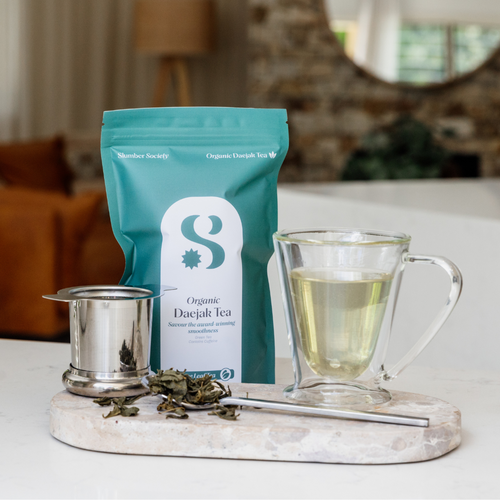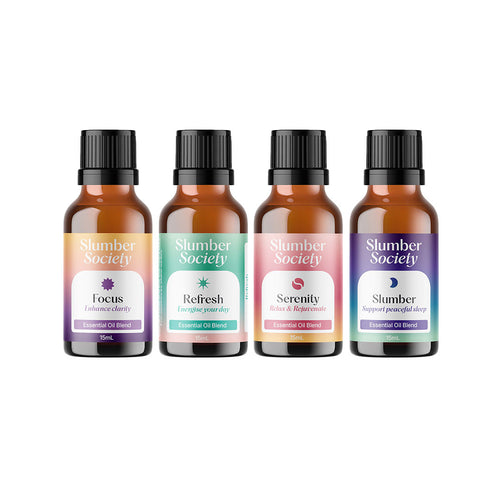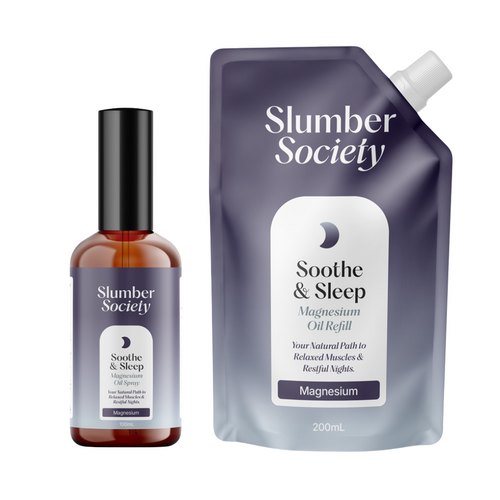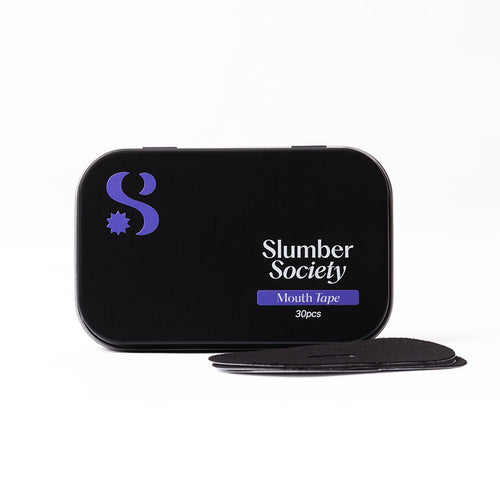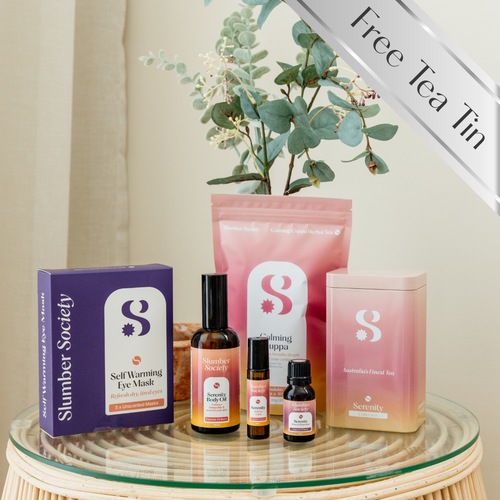Do Sleep Teas Actually Work? Unpacking the Science Behind Your Bedtime Brew
It’s a question many of us ponder as we reach for that comforting evening mug: "Does this really work, or am I just buying into a cozy bedtime fantasy?" While the idea of sipping your way to slumber sounds delightful, it’s fair to be a little skeptical. With so many sleep solutions out there, it's natural to wonder if herbal sleep teas are genuinely effective.
At Slumber Society, we're passionate about natural, holistic approaches to rest. The answer to "Do sleep teas actually work?" is a resounding yes, for many people, they absolutely can, but it's important to understand how they work and what to expect. Let's delve into the science and the ritual that makes these comforting brews so beneficial.
The "How": Unpacking the Science of Sleep-Promoting Herbs
The effectiveness of sleep teas isn't just anecdotal; it's rooted in the natural compounds found in various botanicals. Many of the herbs commonly used in calming tea blends contain compounds that interact with your body's systems to promote relaxation and drowsiness.
Here's a look at some of the key players and how they function:
-
GABA Activation (The "Brake" for Your Brain): Many effective sleep herbs influence Gamma-Aminobutyric Acid (GABA), a primary inhibitory neurotransmitter in your brain. Think of GABA as your brain's "brakes." When activated, GABA helps to reduce neuronal excitability, slowing down brain activity and promoting feelings of calm and relaxation.
- Examples: Herbs like Valerian Root and Passionflower are thought to increase the availability of GABA or enhance its effects, leading to a sedating influence.
-
Soothing Nervines (Calming the System): This category of herbs directly impacts the nervous system, helping to alleviate tension, stress, and anxiety – major culprits behind trouble falling asleep.
- Examples: Chamomile contains an antioxidant called apigenin, which binds to specific receptors in the brain to reduce anxiety and induce drowsiness. Lemon Balm has been traditionally used for its calming properties, believed to reduce excitability and promote relaxation. Lavender, often used in aromatherapy, also contains compounds like linalool that can reduce agitation and promote a sense of calm when consumed as a tea.
-
Anti-Inflammatory & Antioxidant Properties: While not directly sleep-inducing, a body free from excessive inflammation or oxidative stress is better positioned for restful sleep. Some sleep tea ingredients offer these general wellness benefits, indirectly contributing to improved comfort and relaxation.
Beyond Biology: The Powerful Role of Ritual and Routine
Even if the direct chemical effects of some herbs are subtle, the act of preparing and drinking a warm mug of bedtime tea plays a significant, scientifically-backed role in sleep promotion.
- Behavioural Cue: This intentional act creates a powerful psychological anchor. Your body and mind learn to associate the tea-drinking ritual with winding down and preparing for sleep, reinforcing positive sleep hygiene.
- Thermal Comfort: The warmth of the tea can be incredibly soothing, helping to relax muscles and signal to your body that it's time to transition to rest.
- Mindfulness: Stepping away from screens, focusing on the aroma and warmth of the tea, and simply being present can help to quiet a racing mind, a common barrier to deep sleep.
Managing Expectations: What Sleep Teas Are (and Aren't)
It's crucial to approach sleep teas with realistic expectations:
- Not a "Magic Bullet": Sleep teas are generally most effective for individuals experiencing mild to moderate sleep difficulties, stress-induced sleeplessness, or those looking to enhance their existing sleep ritual. They are not a cure for severe insomnia or underlying medical sleep disorders like sleep apnea. Always consult a healthcare professional for persistent or severe sleep problems.
- Part of a Holistic Approach: The true power of sleep teas shines brightest when combined with other good sleep habits: a cool, dark bedroom, a consistent sleep schedule, avoiding caffeine and heavy meals before bed, and managing daytime stress.
Slumber Society's Commitment to Your Restful Nights
At Slumber Society, we meticulously blend our sleep teas not just for their delightful flavour but for their genuine potential to support your journey to better sleep. We offer a range of unique blends – from the comforting Dreamy Australian Cacao Sleep Tea to the serene Lemon Lavender Drift Herbal Sleep Tea – each designed to offer a natural pathway to tranquility.
So, do sleep teas actually work? For those seeking a gentle, natural, and ritualistic way to unwind, reduce stress, and promote more restorative sleep, the answer is a resounding yes. They are a powerful tool in your natural sleep remedy arsenal.
Ready to experience the soothing difference for yourself?
- Learn more about the specific benefits of incorporating these into your routine: Read Our Blog: https://www.slumbersociety.com.au/blogs/herbal-sleep-tea/sleep-tea-benefits-natural-calm-deep-rest-for-better-sleep-slumber-society
- Explore our full collection and find your perfect blend for a peaceful night:



